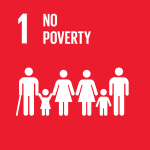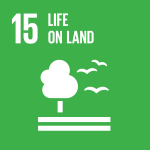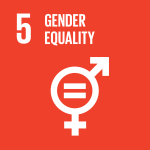
The Democratic Republic of Congo (DRC) has secured US$8.24 million from the Least Developed Countries Fund (LDCF) of the Global Environment Facility (GEF) to launch a new project aimed at building climate resilience in the country’s forested and mountainous eastern provinces. With nearly $19 million in co-financing mobilized by the Congolese government and its partners, the five-year initiative – Resilient Growth and Adaptation to Climate Change in the DRC – is expected to benefit around 30,000 people, at least half of them women.
Led by the Ministry of the Environment and Sustainable Development (MEDD), in partnership with the United Nations Development Programme (UNDP), the project will be rolled out in North Kivu, South Kivu and Maniema, regions with strong agricultural potential but high vulnerability to climate change, land degradation, poverty and conflict
“The climate crisis is threatening the very survival of communities in the DRC, especially in provinces already struggling with poverty, food insecurity, and fragility", said UNDP Resident Representative for DRC, Damien Mama. "This project will unlock the potential of rural communities, particularly women and youth, by dismantling the barriers that hold them back. By strengthening local institutions, delivering critical climate information, and championing sustainable agriculture, we are forging a new path toward a more secure, resilient future for DRC."
 UNDP Resident Representative Damien Mama welcomes support from GEF and all partners in the fight against deforestation in the DRC. Photo: UNDP DRC
UNDP Resident Representative Damien Mama welcomes support from GEF and all partners in the fight against deforestation in the DRC. Photo: UNDP DRC
The initiative is designed to deliver long-term resilience by integrating climate risks into local policies; promoting sustainable agriculture; and strengthening climate information, to help farmers anticipate and manage growing risks.
Nature-based solutions will address pressing challenges such as soil erosion, food insecurity and resource-related tensions, while investments in climate-resilient value chains will support economic opportunities, particularly for women and youth.

The annual deforestation rate in the DRC has increased significantly in recent years. Photo: UNDP DRC
At least 15,000 hectares of farmland will be placed under climate-resilient practices, and over 500 lead farmers will receive improved seeds and training to better cope with droughts, floods and erratic rainfall. Women entrepreneurs will be supported to develop marketable business models in agricultural processing and marketing.
"This project builds on years of groundwork laid by the GEF, UNDP and partners to strengthen climate resilience in the DRC," said GEF Chairman and CEO, Carlos Manuel Rodríguez. "By addressing the root causes of vulnerability – degraded ecosystems, weak institutions, and lack of opportunity – this initiative is not only advancing adaptation, but also fostering peace and stability in communities where climate and conflict intersect."
With a strong focus on community engagement, the project will mobilize farmer cooperatives, women’s and youth groups, seed providers and local leaders. Regional knowledge-sharing with countries like Uganda, Rwanda and Burundi will also be explored.
The project is an important contribution to the DRC’s climate commitments under the Paris Agreement, through its National Adaptation Plan (NAP) and Nationally Determined Contribution (NDC), while advancing the country’s sustainable development goals.
***
About UNDP
UNDP is the leading United Nations organization fighting to end the injustice of poverty, inequality and climate change. Working with our broad network of experts and partners in 170 countries, we help nations to build integrated, lasting solutions for people and the planet. Learn more at undp.org or follow at @UNDP.
About the GEF
The Global Environment Facility (GEF) includes several multilateral funds working together to address the planet's most pressing challenges in an integrated way. Its financing helps developing countries address complex challenges and work towards meeting international environmental goals. Over the past three decades, the GEF has provided more than $26 billion in financing, primarily as grants, and mobilized another $153 billion for country-driven priority projects. www.thegef.org




